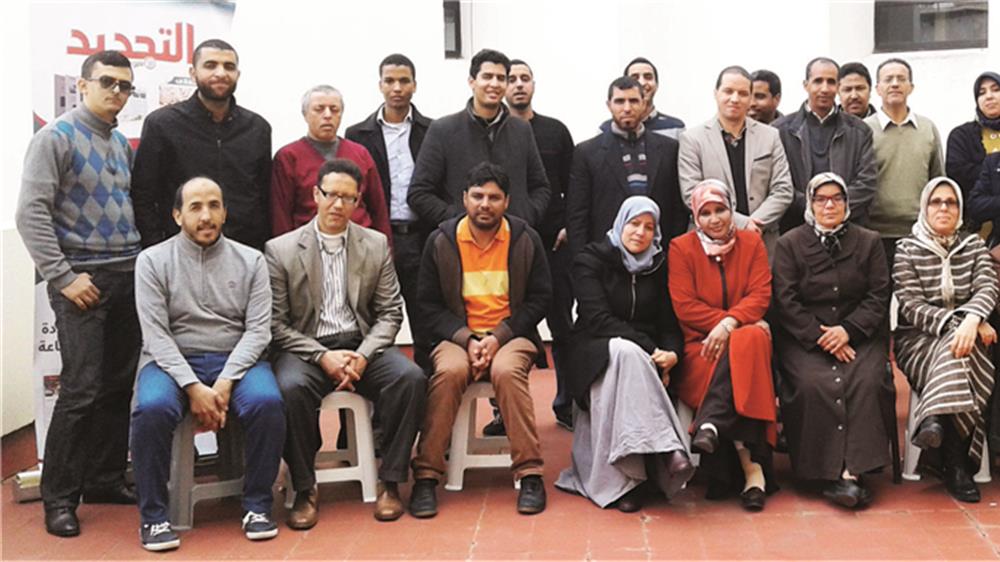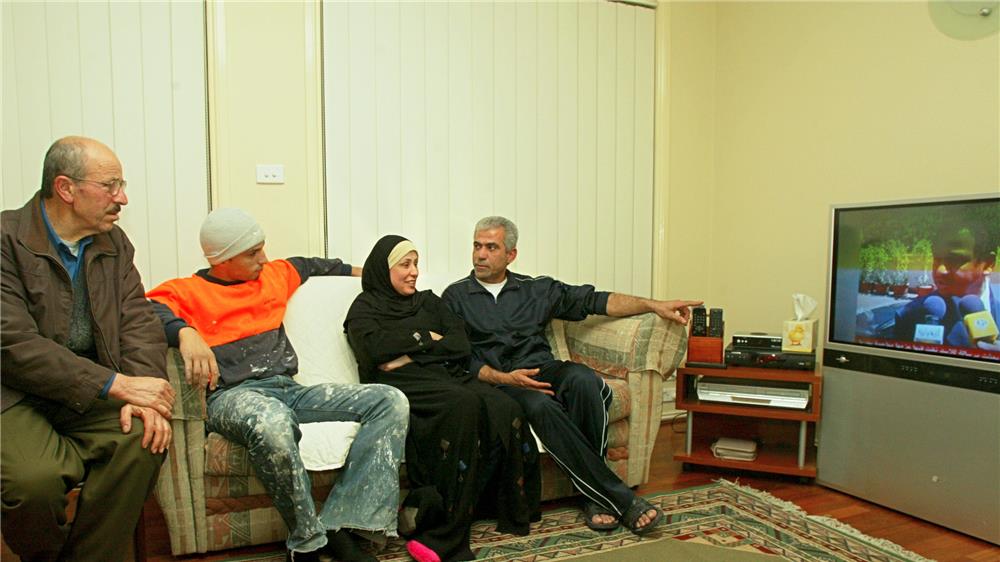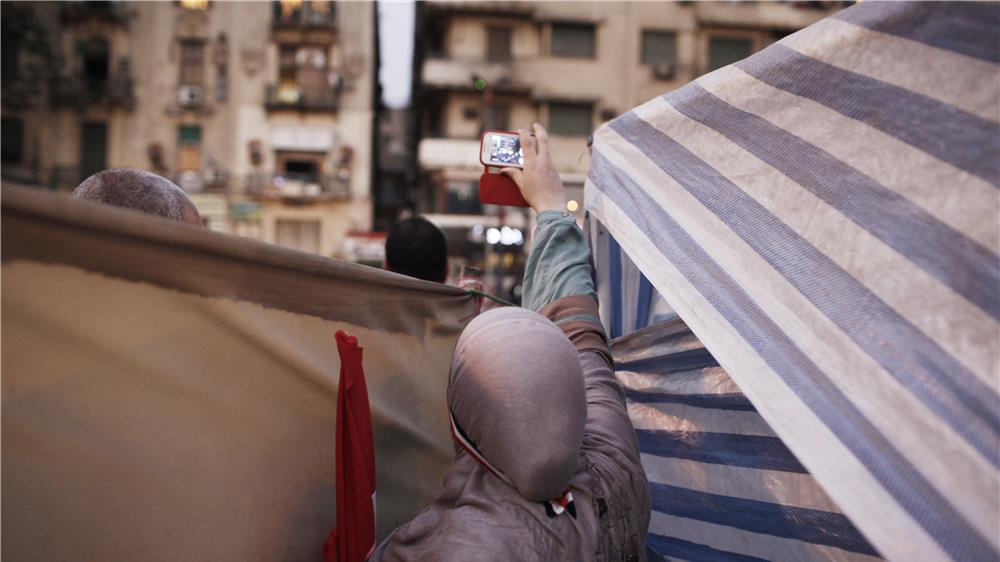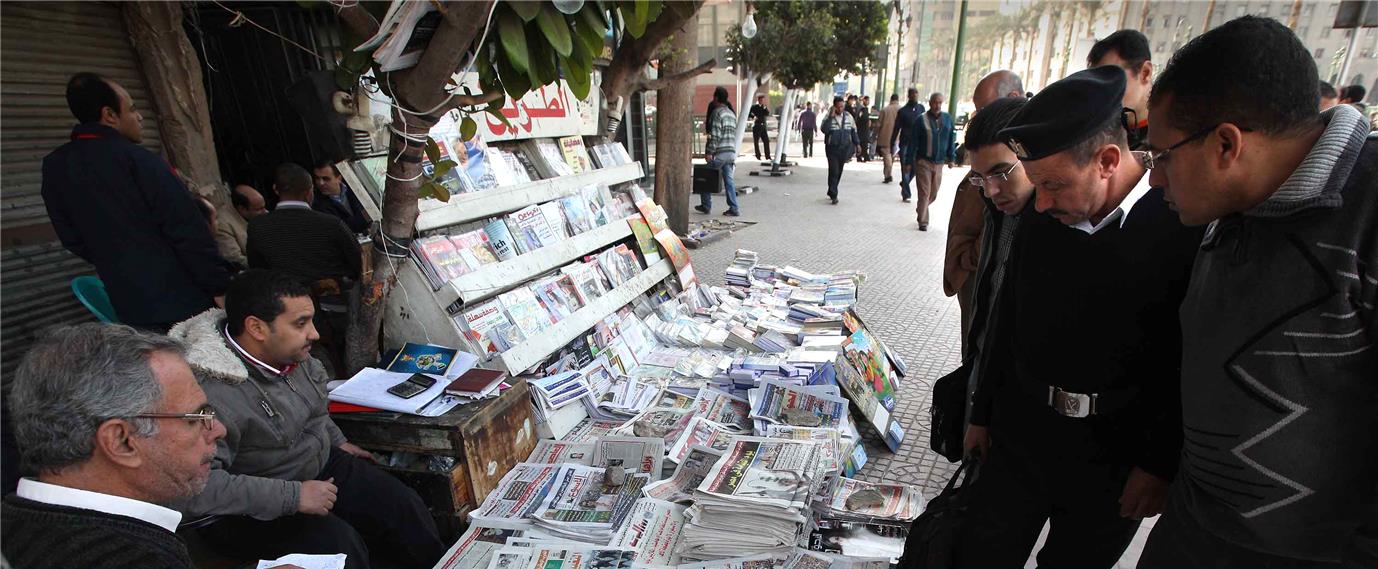لعل الحديث عن العلاقة بين الإعلام الرقمي -أو ما يسمى الإعلام الجديد- والإعلام التقليدي قد شهد بداياته مع بداية انتشار الإنترنت في العالم العربي، إلا أن النقاش كان ينصب على التنافس ونقط التلاقي والاختلاف، ونقط قوة كل صنف مقارنة بالآخر، ليخلص في ندوات فكرية وإعلامية عديدة إلى إمكانية التعايش بينهما، وإمكانية التكامل واستفادة كل صنف من الآخر.
ومع تطور وسائل التواصل الاجتماعي وارتفاع المد التقني وتطور الصحافة الذكية، وكذا ارتفاع نسب الولوج إلى الإنترنت، أصبح الواقع يفرض توازنات جديدة، وأصبحنا أمام معطًى -يعتبره الإعلاميون اليوم حقيقة- يقول بهيمنة الإعلام الرقمي وانكماش التقليدي.
فهل يلتهم الإعلامُ الرقمي الإعلامَ التقليدي؟ وهل يطغى عمل المواطن الصحفي على عمل الصحفي المحترف؟ وهل تهدّد تلك المستجدات مهنة الصحافة، سيما بعد إغلاق عدد من الصحف الورقية، لن يكون آخرها صحيفة التجديد المغربية التي اشتغلت في الحقل الإعلامي المغربي كصحيفة ورقية يومية وأسبوعية لأكثر من ربع قرن حتى مارس/آذار المنصرم؟
مقبرة الصحف تتسع
تتساقط الصحف الورقية كأوراق شجر في هبة خريف.. صحف عريقة تقفل تباعا، ومواقع إلكترونية تعاني قلة التمويل، وقنوات تلفزية مهجورة، وإذاعات يفوق عاملوها مستمعيها.. لعلها صورة سوداء على ما يبدو، لكن الخبراء يؤكدون حقيقتها، والواقع يصدقها ويؤشر عليها.
قبل فترة قصيرة، أغلقت مؤسسة التجديد المغربية أبواب صحيفة "التجديد الأسبوعية"، وقبلها أُغلقت صحف "الناس" و"العاصمة" و"الخبر".
ولعل إعلان توقف موقع "أصوات مصرية" الذي أنشأته في البداية مؤسسة تومسون رويترز بمصر غير بعيد عنا، وكذا صحيفة "السفير" اللبنانية.
"التجديد" أكدت في بيان أصدرته يوم 27 مارس/آذار الماضي أنه "رغم العديد من محاولات الإنقاذ المتتالية، لم يعد ممكنا الاستمرار في الإصدار، خصوصا بعد وقف معلنين كبار للعقود الإشهارية (عقود الإعلانات) التي كانت تجمعهم بالمؤسسة؛ لأسباب غير مفهومة".. الأسباب نفسها عبرت عنها "أصوات مصرية" حين أعلنت توقفها، مقدمة سبب التمويل كقاهر يصعب التغلب عليه.
وفي تعليق على إغلاق "التجديد"، قال رئيس فدرالية الناشرين بالمغرب نور الدين مفتاح "إن إغلاق صحيفة بالمغرب يعتبر جنازة"، معتبرا أن مقبرة الصحف تتسع، وأن أزمة الإعلام هيكلية، لظروف التحول الرقمي"، منبها إلى خطر إغلاق ما يناهز ثلاثين صحيفة وموقعا إلكترونيا في السنوات القادمة.
رئيس تحرير صحيفة "التجديد" السابق حسن بويخف اعتبر في عددها الأخير أن منبر "التجديد" شهيد آخر في ساحة الإعلام المغربية، اغتالته رصاصة التحكم الاقتصادي، ليضاف إلى كوكبة "شهداء" سابقين، و"كل أملنا أن ينتهي عهد قتل الصحافة برصاص الإشهار الموجه".
من جانبه حمَّل المستشار الإعلامي رشيد جنكاري المسؤولية للهيئة الناشرة -في إشارة إلى حركة التوحيد والإصلاح الإسلامية- وقال إنها استهانت بالجانب الإعلامي، وإن الموت الذي شهدته صحيفتها ليس ضمن مؤشرات موت الصحافة الورقية، وإن هناك جزءا من سوء التدبير وغياب المقاربة الاقتصادية للمنبر، إضافة إلى غياب الاستثمار في الموارد البشرية والبنيات التحتية.

الهيمنة.. حقيقة مرة
كان المشهد يعرف نوعا من التنافس، وكان الحديث عن التكامل حينا وعن التنافر والاختلاف حينا آخر، إلى أن تحول إلى حديث عن هيمنة واكتساح للرقمي، وعن أزمة خانقة يعيشها الإعلام التقليدي.. مشهد قال عنه بويخف إنه "حقيقة مُرّة"، بيد أنها "حقيقة حضارية"، وتحدّث عن الأزمة التي تعيشها الصحافة الورقية والتي تظهر في تراجع مبيعاتها وتوجه الجمهور نحو الرقمي، بينما يعيش الأخير بدوره أزمة على مستوى المهنية والجودة، وفي فوضى انتشار الأخبار الكاذبة، معتبرا أن التنافس حضاري ومرتبط بمعطيات أخرى لا تتعلق بالمهنة في حد ذاتها.
وأوضح بويخف أن ثالوث الإعلام التقليدي المتمثل في الصحف الورقية والتلفزة والمذياع، يواجه صعوبات أمام التحولات التي شهدها الإعلام الذي يعتمد على الإنترنت، وقال إنه بالنسبة لقطاع التلفزيون فالأزمة في بدايتها على اعتبار أنه يفقد مصادر التمويل الآتية من الإشهار، لكنه ما زال يحتفظ نسبيا بالجمهور خصوصا في العالم العربي، والمُعلِن يتبع الجمهور ويتجه إلى الاستثمار في الإنترنت.

في التقليدي بقية
يفصل جنكاري بين الإعلام في الدول الديمقراطية والإعلام في الدول غير الديمقراطية، ويعتبر الوسائل الحديثة متنفسا في غياب الديمقراطية وهيمنة القطاع العام على الإعلام العمومي.
وبدا جنكاري متفائلا وهو الفاعل في الإعلام الرقمي، حيث قال إن "الإعلام التقليدي هو حاضنة للرقمي بالنظر إلى الجانب البشري"، معتقدا باستمرار القطاع التقليدي إلى جانب الرقمي وفي تفاعل معه.. "اليوم لسفر معين يمكن أن تركب الطائرة كما يمكن أن تسافر بالباخرة، ولا يمكن أن نقول إن هذا أفضل من هذا، أو إن هذا سيلغي هذا"، وأوضح "هناك مستقبل لكل ما هو تقني، لكن الإعلام التقليدي لن يندثر".
أما بويخف فيرى في سلوك الجمهور عاملا محددا ورئيسيا، وأن الأمية ثانوية في التأثير رغم كونها حاضرة، لكن ليست حاسمة في التنافس بين المقروء سواء أكان ورقيا أو رقميا. ولا يرى أن الإعلام التقليدي سينقرض، مشيرا إلى أن التاريخ يحكي قصة معاصرة الصحيفة للراديو والتلفزة والإنترنت.
مسألة وقت
من جانبه اعتبر مدير قسم البرامج العربية في قناة "العربية" أنطوان عون أن العالم يشهد مذبحة للإعلام الورقي، وأن وسائل الإعلام التقليدية تمر بمرحلة عصيبة.
ويرى عون أن ما يُبقي الإعلام التقليدي مزدهرا اليوم هو وجود أمية في العالم العربي.. "اليوم نحن في القنوات أصبحنا نعاني من هجرة المشاهدين للشاشة، ونراقب يوميا كيف يتراجع عدد المشاهدين الذي كان يعرف ارتفاعا في الأخبار وفي البرامج السياسية، وقد تناقصت نسب المشاهدين بحوالي النصف". ويعتقد أن الإعلام التقليدي في مأزق كبير وأن كلفته مرتفعة جدا، مشيرا إلى أن النقل المباشر مثلا يمكن القيام به بالهاتف وإرساله إلى أكثر من منصة، كما يمكن لصحفي واحد أن يحل محل فريق تصوير كامل.
وأحال عون أمر انتهاء الإعلام التقليدي إلى الزمن، مبيّناً أن أميركا تقدِّر المدة في غضون 15 عاما، بينما ستكون المدة أكبر في العالم العربي بالنظر إلى معدلات الأمية التي لا تزال مرتفعة. أما بالنسبة للصحافة الورقية فهي "للأسف تموت"، بتعبير عون الذي ذكَّر بتوقف صحف كبرى في لبنان، منها "السفير".
رئيس تحرير موقع "أصوات مصرية" عماد عمر اعتبر أن المنطقة العربية لم تصل بعدُ مرحلة هيمنة الإعلام الرقمي لأسباب عدة، منها معدل انتشار الإنترنت وسرعته، مؤكدا ما قاله الآخرون بأن "قدرة الصحافة الورقية على البقاء تزداد صعوبة مع الوقت بسبب ارتفاع التكلفة وتزايد ارتباط الجمهور بالإنترنت".

تهديد وممانعة
يعتقد عمر أن صحافة المواطن تهدد بالفعل الصحافة المحترفة لأنها تستقطب جمهورا وترفع سقف المطلوب من الصحفيين المحترفين، ناصحا الصحفي المحترف بضرورة شحذ أدواته وزيادة جهده لإبراز أهمية الصحافة المهنية في التوثيق، وبتنفيذ موضوعات معمقة وعدم الاكتفاء بتغطية الأخبار فقط.
واقترح أن تُطوِّر المؤسسات الصحفية نماذج أعمال قادرة على الاستمرار.. "يجب أن نصل إلى مرحلة يشعر الجمهور فيها أنه مستعد لدفع مقابل لما يحصل عليه من الصحافة المهنية،وأن يشعر بالفرق بينها وبين صحافة المواطن".
أنطوان عون شاركه التوجّه نفسه، ناصحا الصحفيين "بضرورة التكيف والانفتاح على الرقمي، واعتماد المدونات وتسويقها عبر المواقع الاجتماعية".








































